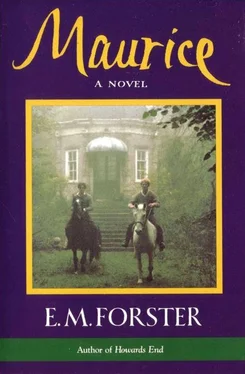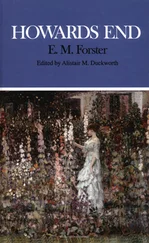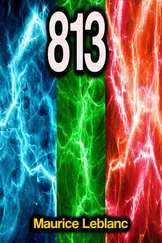"You're all right," repeated the other. "You can marry tomorrow if you like, and if you take an old man's advice you will. Cover up now, it's so draughty. What put all this into your head?"
"So you've never guessed," he said, with a touch of scorn in
his terror. "I'm an unspeakable of the Oscar Wilde sort." His eyes closed, and driving clenched fists against them he sat motionless, having appealed to Caesar.
At last judgement came. He could scarcely believe his ears. It was "Rubbish, rubbish!" He had expected many things, but not this; for if his words were rubbish his life was a dream.
"Dr Barry, I can't have explained —"
"Now listen to me, Maurice, never let that evil hallucination, that temptation from the devil, occur to you again."
The voice impressed him, and was not Science speaking?
"Who put that he into your head? You whom I see and know to be a decent fellow! We'll never mention it again. No ril not discuss. I'll not discuss. The worst thing I could do for you is to discuss it."
"I want advice," said Maurice, struggling against the overwhelming manner. "It's not rubbish to me, but my life."
"Rubbish," came the voice authoritatively.
"I've been like this ever since I can remember without knowing why. What is it? Am I diseased? If I am, I want to be cured, I can't put up with the loneliness any more, the last six months specially. Anything you tell me, I'll do. That's all. You must help me."
He fell back into his original position, gazing body and soul into the fire.
"Come! Dress yourself."
"I'm sorry," he murmured, and obeyed. Then Dr Barry unlocked the door and called, "Polly! Whisky!" The consultation was over.
32
Dr Barry had given the best advice he could. He had read no scientific works on Maurice's subject. None had existed when he walked the hospitals, and any published since were in German, and therefore suspect. Averse to it by temperament, he endorsed the verdict of society gladly; that is to say, his verdict was theological. He held that only the most depraved could glance at Sodom, and so, when a man of good antecedents and physique confessed the tendency, "Rubbish, rubbish!" was his natural reply. He was quite sincere. He believed that Maurice had heard some remark by chance, which had generated morbid thoughts, and that the contemptuous silence of a medical man would at once dispel them.
And Maurice went away not unimpressed. Dr Barry was a great name at home. He had twice saved Kitty and had attended Mr Hall through his last illness, and he was so honest and independent and never said what he did not feel. He had been their ultimate authority for nearly twenty years — seldom appealed to, but known to exist and to judge righteousness, and now that he pronounced "rubbish", Maurice wondered whether it might not be rubbish, though every fibre in him protested. He hated Dr Barry's mind; to tolerate prostitution struck him as beastly. Yet he respected it and went away inclined for another argument with destiny.
He was the more inclined for a reason that he could not tell to the doctor. Clive had turned towards women soon after he reached the age of twenty-four. He himself would be twenty-four in August. Was it possible that he would turn also… and now that he came to think, few men married before twenty-four. Maurice had the Englishman's inability to conceive variety. His troubles had taught him that other people are alive, but not yet that they are different, and he attempted to regard Clive's development as a forerunner of his own.
It would be jolly certainly to be married, and at one with society and the law. Dr Barry, meeting him on another day, said, "Maurice, you get the right girl — there'll be no more trouble then." Gladys Olcott recurred to him. Of course he was not a crude undergraduate now. He had suffered and explored himself, and knew he was abnormal. But hopelessly so? Suppose he met a woman who was sympathetic in other ways? He wanted children. He was capable of begetting children — Dr Barry had said so. Was marriage impossible after all? The topic was in the air at home, owing to Ada, and his mother would often suggest that he should find someone for Kitty and Kitty someone for him. Her detachment was amazing. The words "marriage," "love," "a family" had lost all meaning to her during widowhood. A concert ticket sent by Miss Tonks to Kitty revealed possibilities. Kitty could not use it, and offered it round the table. Maurice said he should like to go. She reminded him that it was his Club night, but he said he would cut that. He went, and it happened to be the symphony of Tchaikovsky Clive had taught him to like. He enjoyed the piercing and the tearing and the soothing — the music did not mean more to him than that — and they induced a warm feeling of gratitude towards Miss Tonks. Unfortunately, after the concert he met Risley.
"Symphonie Pathique," said Risley gaily.
"Symphony Pathetic," corrected the Philistine.
"Symphonie Incestueuse et Pathique." And he informed his young friend that Tchaikovsky had fallen in love with his own nephew, and dedicated his masterpiece to him. "I come to see all respectable London flock. Isn't it supreme!"
"Queer things you know," said Maurice stuffily. It was odd that when he had a confidant he didn't want one. But he got a life of Tchaikovsky out of the library at once. The episode of the composer's marriage conveys little to the normal reader, who vaguely assumes incompatibility, but it thrilled Maurice. He knew what the disaster meant and how near Dr Barry had dragged him to it. Reading on, he made the acquaintance of "Bob", the wonderful nephew to whom Tchaikovsky turns after the breakdown, and in whom is his spiritual and musical resurrection. The book blew off the gathering dust and he respected it as the one literary work that had ever helped him. But it only helped him backwards. He was where he had been in the train, having gained nothing except the belief that doctors are fools.
Now every avenue seemed blocked, and in his despair he turned to the practices he had abandoned as a boy, and found they did bring him a degraded kind of peace, did still the physical urge into which all his sensations were contracting, and enable him to do his work. He was an average man, and could have won an average fight, but Nature had pitted him against the extraordinary, which only saints can subdue unaided, and he began to lose ground. Shortly before his visit to Penge a new hope dawned, faint and unlovely. It was hypnotism. Mr Cornwallis, Risky told him, had been hypnotized. A doctor had said, "Come, come, you are no eunuch!" and lo! he had ceased to be one. Maurice procured the doctor's address, but did not suppose anything would come of it: one interview with the science sufficed him, and he always felt Risley knew too much; his voice when he gave the address was friendly but slightly amused.
33
Now that Clive Durham was safe from intimacy, he looked forward to helping his friend, who must have had a pretty rough time since they parted in the smoking-room. Their correspondence had ceased several months ago. Maurice's last had been written after Birmingham, and announced he should not kill himself. Clive had never supposed he would, and was glad the melodrama was over. When they talked down the telephone he heard a man whom he might respect at the other end of it — a fellow who sounded willing to let bygones be bygones and passion acquaintanceship. There was no affectation of ease; poor Maurice sounded shy, a bit huffy even, exactly the condition Clive deemed natural, and felt he could ameliorate.
He was anxious to do what he could. Though the quality of the past escaped him he remembered its proportions, and acknowledged that Maurice had once lifted him out of aestheti-cism into the sun and wind of love. But for Maurice he would never have developed into being worthy of Anne. His friend had helped him through three barren years, and he would be ungrateful indeed if he did not help his friend. Clive did not like gratitude. He would rather have helped out of pure friendliness. But he had to use the only tool he had, and if all went well, if Maurice kept unemotional, if he remained at the end of a telephone, if he was sound as regarded Anne, if he was not bitter, or too serious or too rough — then they might be friends again, though by a different route and in a different manner. Maurice had admirable qualities — he knew this, and the time might be returning when he would feel it also.
Читать дальше












